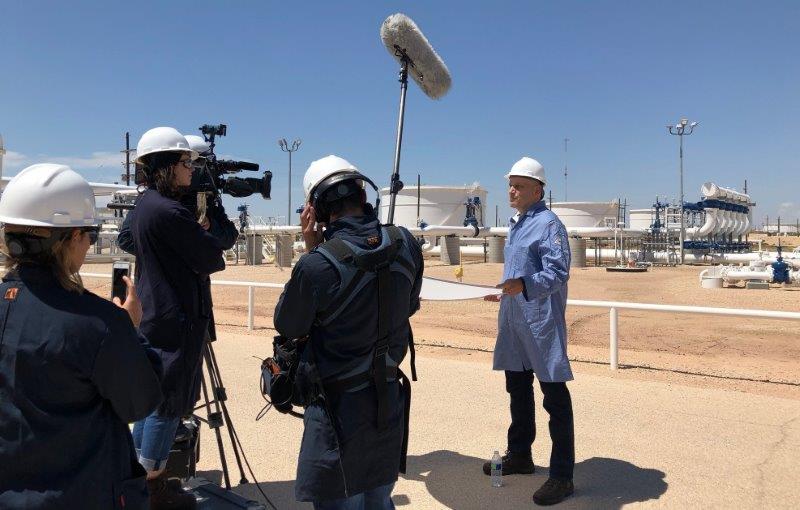CNBC Report Underscores Tariff Obstacles for U.S. Energy
Mark Green
Posted August 28, 2018
API’s Kyle Isakower is featured in a CNBC report that estimates new steel tariffs are adding $40 million to Permian Basin pipeline costs. See the video:
At issue is Plains All-American’s $1.1 billion pipeline project that would bring crude oil from the Permian to the Gulf Coast. As detailed in this post, Plains requested an exclusion from the tariff for its project, but it was denied by the Commerce Department. Again, in the CNBC clip, Isakower points out that the process for obtaining a tariff exclusion is fraught with problems:
“There have been instances where a single company has filed two petitions, and one has been accepted and the other denied – despite the fact that the petitions were virtually identical. It makes this process seem quite arbitrary.”

Indeed, a recent Argus Media analysis of more than 100 exemption petitions submitted by natural gas and oil companies found the process has “proven to be ineffective.” Argus reports:
Oil and gas companies initially hoped the waiver mechanism might be used liberally by an administration that made attaining “energy dominance” a priority. Companies in their requests said the steel products they are importing are not made in the US or could not be procured in time for the projects. But that optimism started to fade last month as the US Commerce Department began denying many requests with two-page letters that frustrated applicants for their lack of specifics. Pipeline groups say they believe requests are being denied based on a handful of objections from US steel companies, to which they are unable to respond.
Far from being part of an “energy dominance” strategy, the administration’s tariffs on steel – including an onerous, opaque exclusions process – and other recent trade-related policies could hinder domestic natural gas and oil development, as well as infrastructure such as pipelines that is needed to fully benefit U.S. consumers.
The steel tariff and other trade-restricting policies should be revisited by the administration to avoid harming an industry that is playing a primary role in driving the U.S. economy and building American energy security.
About The Author
Mark Green joined API after a career in newspaper journalism, including 16 years as national editorial writer for The Oklahoman in the paper’s Washington bureau. Previously, Mark was a reporter, copy editor and sports editor at an assortment of newspapers. He earned his journalism degree from the University of Oklahoma and master’s in journalism and public affairs from American University. He and his wife Pamela have two grown children and six grandchildren.


